It’s that time of year again – time for my wrap-up of the best – and worst – movies of the year. Coming up with this year’s list was indeed challenging. Considering how lame 2021 was for new film releases, I initially had difficulty compiling a Top 10 list; there were plenty of middle ground candidates worthy of honorable mentions or modestly favorable ratings, but, in drafting my first Top 10 summation, I only managed to come up with eight pictures that I felt were suitable enough to be accorded such a designation. I later arrived rounded out the list, but it wasn’t until I screened a few last-minute entries.
As for the Bottom 10 and my list of Dishonorable Mentions, I had no trouble coming up with a list of candidates. In fact, there were plenty more that may have qualified for such designation had my lists here been more expansive. And, unfortunately, it’s not something in which I take much satisfaction. As a life-long movie lover, it heartens me to be able to praise truly good cinema. In 2021, however, the pickings were rather slim. In fact, I had to ask myself, “Am I becoming a miserable old curmudgeon, or were last year’s film offerings really that bad?” Sadly, while the former may be true to a certain extent, I had to accept the fact that the latter was truly responsible for 2021’s disappointing parade of movies.
What I also found disturbing was the degree of overhyped praise being lauded on positively mediocre or even awful releases. I couldn’t help but wonder what was driving these overly inflated evaluations. Were critics so desperate for material that would pass as praiseworthy that they were willing to heap accolades atop pictures not deserving of such honors? Or were they not seeing just how underwhelming these offerings truly were? As readers will find, many of this year’s awards contenders have either not ended up on my Top 10/honorable mention lists or have managed to regrettably find a place on my Bottom 10/dishonorable mention lists. As a bona fide cinephile, that’s really, really disappointing.
The two genres that offered the brightest spots in 2021 were foreign films and documentaries. Readers will find a number of releases from overseas on the Top 10/honorable mention lists. And, as for the documentaries, there were so many noteworthy ones that I have opted to discuss them in a separate blog entry to be published in the near future. Watch for it.
In the meantime, here’s what I believe are this year’s best offerings. While I have not seen absolutely everything that has been released (a virtual impossibility), I have screened most of 2021’s leading contenders and have summarized my favorites – and least favorites – here. If there are films missing from this year’s lists about which you’d like to know how I assessed them, please visit this site’s Quick Cuts page, which includes summaries of all of the 2021 releases I viewed.
The Top 10 Countdown
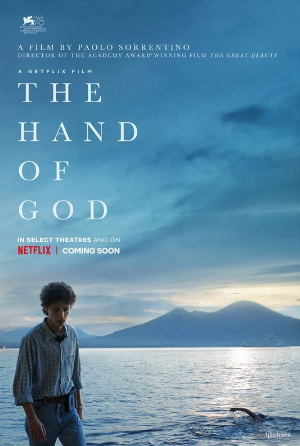
10. “The Hand of God” (“È stata la mano di Dio”) (Italy/USA)
How we get to where we are in life often involves some unusual and seemingly disconnected paths that, at the time, may appear incoherent and wholly unrelated. Yet, somewhere down the road, when we go back and retrace the steps, we can see how they all combine in creating a mosaic of our being, as if bestowed upon us by an invisible source of Higher Power. That’s the central theme explored in director Paolo Sorrentino’s latest offering, a semi-autobiographical tale revealing how an unfocused Italian teen growing up in Naples in the 1980s found his way to filmmaking as a vocation thanks to the influences provided by a funny but dysfunctional family, infatuations with a trio of older women, an assortment of colorful ancillary characters, a terrible tragedy and the admiration of a soccer sensation. While the film is somewhat episodic and in need of more back story for the protagonist, it nevertheless provides an attention-holding journey filled with unexpected twists and turns, as well as the signature Fellini-esque quirkiness found in many of the filmmaker’s other offerings. The drastic changes in mood occasionally make the narrative somewhat jarring and ponderous, but, in that regard, this amalgamation of different tones evokes a realistic portrait of life, one that seldom follows a predictable and set pattern in its unfolding. Like most of Sorrentino’s pictures, this one won’t appeal to everyone, especially those with more conventional tastes. But, for those who enjoy a slice of the off-beat, this heartfelt rendering of the evolution of one individual’s singular life experience fills the bill nicely.
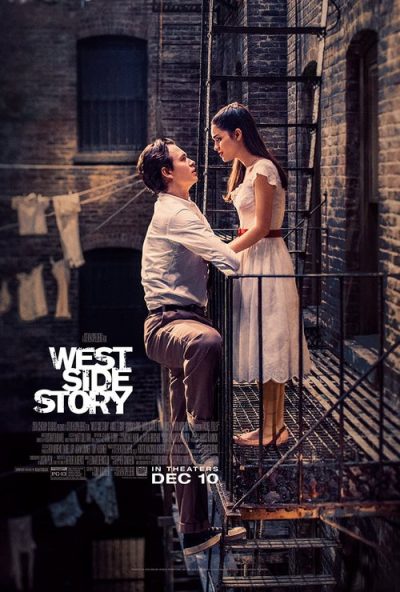
9. “West Side Story” (USA)
Ever since I saw the delightfully campy opening musical sequence of “Indiana Jones and the Temple of Doom” (1984), I’ve always wanted to see Steven Spielberg direct a full-length feature movie musical (even though it’s far from my favorite film genre). And, in the case of his remake of this beloved movie classic, he does quite a commendable job overall, yielding an offering that I enjoyed far more than I expected I would, even at its protracted, though surprisingly well-paced, two-and-a-half-hour runtime. While some have questioned the filmmaker’s decision to attempt a reboot of a cinematic icon like this (a decidedly risky venture in the movie biz), I believe it ultimately proved to be a wise choice, despite its tepid box office performance. Its stylish re-creation of something familiar with music that’s actually memorable (unlike that found in most other contemporary movie musicals) automatically earns this production more than a few gold stars. The same can be said for the positively superb choreography, the excellent renditions of the time-tested musical numbers, the solid supporting portrayals of ensemble members like Ariana DeBose and the casting of returning veteran Rita Moreno in a fine supporting role. Despite these many strengths, however, the picture still feels like it’s lacking an engaging emotional undercurrent beneath its high-gloss surface trappings. It also could have used a better casting choice than Ansel Elgort in the male lead. And the film’s attempt at bringing the story in line with current political correctness in some of its screenplay and production decisions (like no subtitles for much of the dialogue spoken in Spanish – lame!) speaks more to market and cultural pandering than wise filmmaking or bona fide narrative authenticity. Still, this is a film worth seeing for all of the things it gets right – and, coming from me, that says a lot where a musical is concerned.
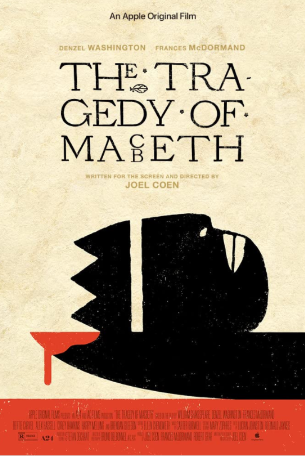
8. “The Tragedy of Macbeth” (USA)
While William Shakespeare’s legendary tragedy has been translated to the screen more times than one can count, this version from director Joel Coen does remarkable justice to the material in technical terms. The stark black-and-white cinematography and stylish production design reminiscent of German expressionism are positively stunning, suitably complemented by deft film editing and the ethereal score of Carter Burwell. The superb ensemble cast delivers, too, particularly protagonist Denzel Washington and supporting players Corey Hawkins and, especially, Frances McDormand. If I were to find a shortcoming here it would be that the picture isn’t as emotionally engaging as it could have been, with its cold, distant ambiance putting up an often-imposing wall between narrative and viewers. There’s nothing inherently wrong with that, given the filmmaker’s take on this story, but it admittedly keeps the audience at arm’s-length more than some cinephiles may feel comfortable with. Still, the timeless quality of this tragedy nevertheless comes through, making this one of the finer offerings of 2021.

7. “Lamb” (“Dýrið") (Iceland/Sweden/Poland)
What a refreshing surprise! This unusual blend of mystery, horror, folk tale, and dark, offbeat comedy will easily tickle those whose funny bones lean toward the strange and macabre. When a childless Icelandic sheep herding farm couple finds a surprise in their barn, it sends them down a path strewn with happiness, tragedy, karma and more than a few surprises. Writer-director Valdimar Jóhannsson’s debut feature definitely won’t appeal to everyone, but those who appreciate fresh, inventive material will love this immensely creative offering, told with subtle, tongue-in-cheek wit, gorgeous cinematography and a style that relies more on showing than telling. Imagine a contemporary story told in the style of a Grimms fairytale, and you’ve got a pretty good idea what’s in store in this stylish, hilarious, creepy and darkly charming release.
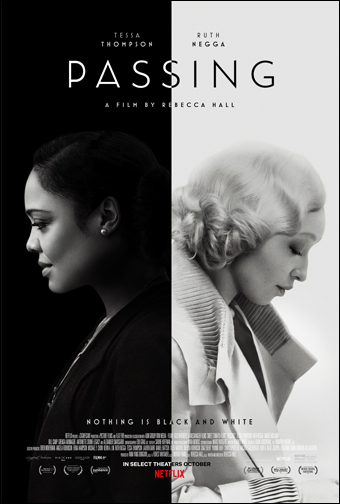
6. “Passing” (UK/USA)
Trying to pass oneself off as something one is not can be a tricky – even dangerous – path to follow. But, at one time, it was a widely utilized practice in the African-American community, one in which light-skinned Blacks sought to be seen and accepted as Caucasian, believing that doing so would afford them benefits that their darker-skinned peers were fundamentally unable to avail themselves of. This was known as “passing,” and it’s the subject of director Rebecca Hall’s debut feature. The film, set in 1920s New York, tells the story of two old friends who have a chance meeting after a number of years apart. One has been passing for years, not even telling her White husband the truth about her ethnic background. The other, a resident of Harlem, could pass if she chose to but doesn’t, as she enjoys her life with her ebony-skinned husband and two sons. But, as they renew their friendship, the issue comes up for scrutiny on a number of occasions and in a number of ways, frequently leading them into some potentially problematic territory while simultaneously revealing that both they and others they know are all trying to “pass” in one way or another (and not necessarily where race is concerned). Eloquently and poetically shot in black and white, this fine offering gives viewers much to ponder where ethnicity, tolerance and integrity are concerned, all brought to life by the fine performances of Tessa Thompson, Ruth Negga, Andre Holland and Bill Camp. Several story threads feel a bit underdeveloped, but, on balance, this intriguing look at a challenging subject is sensitively handled, thought provoking and an excellent premiere effort from an aspiring filmmaker.

5. “Spencer” (Germany/Chile/UK/USA)
There’s a big difference between fable and chronicle, and that seems to be the point on which many viewers are misunderstanding in this historic “what if” saga about one of the world’s best known and most celebrated icons. At a time when the onetime-fairytale marriage of Princess Diana and Prince Charles was quickly dissolving, we see a frazzled woman in transition, fighting to protect her own identity and the well-being of her children under the crushing weight of traditions and expectations that did not suit her. Set during the 1991 Christmas holidays at the Queen’s Sandringham Estate, Diana struggles to be herself without completely losing it in the company of one of the world’s most distasteful and dysfunctional families. As this story unfolds, however, viewers see a side of the beloved People’s Princess that is not always the most flattering but nevertheless depicts her honestly as an authentic human being seeking to keep herself from being consumed by the toxic environment surrounding her. Of course, even though this film involves real life figures, it’s fundamentally a work of speculative fiction and makes that point clear from the very start, a statement many audience members may have missed, misunderstood, ignored or didn’t take seriously. In that regard, director Pablo Larraín’s latest is thus more of a hypothetical character study, presenting events and situations where the kinds of issues Diana was experiencing are depicted despite a lack of verified substantiation. To be sure, some of those incidents are a little melodramatic, with symbolism that can be a trifle heavy-handed and obvious at times. However, when considered within the narrative context in which they’re included, it’s understandable why they were made part of the story. In this way, much of what the filmmaker has done here for Diana is similar to what he did in “Jackie” (2016) for First Lady Jacqueline Kennedy, both pictures being about women who experienced tremendous tragedy in their lives and how they attempted to cope with their circumstances. The crowning element of this film, of course, is the positively stellar performance of Kristen Stewart, a portrayal that easily makes clear why she’s currently the leading contender to win this year’s Oscar for best actress. But there are many other fine attributes here, too, from production design to costumes to a fine supporting cast and more. It’s indeed unfortunate that this offering has become so misunderstood in a number of circles, but it truly is one of this year’s finest, as long as viewers appreciate why it is the way it is.
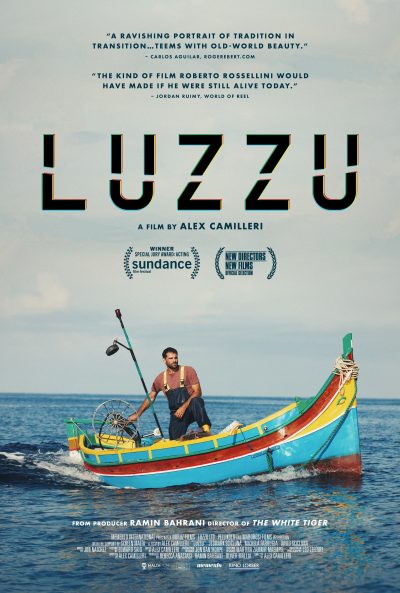
4. “Luzzu” (Malta)
While the narrative of this engaging Maltese offering may seem somewhat familiar (at least superficially), there are plot developments that defy formula and take the film in unexpected directions. Add to that the picture’s fresh locale and little-known subject matter, and you’ve got a truly intriguing release. But what’s perhaps most impressive about this debut feature from director Alex Camilleri, a nominee for the Independent Spirit Awards’ Someone to Watch Award, is the strength of the performances he’s managed to evoke from a cast consisting of many nonprofessional actors, including protagonist Jesmark Scicluna, winner of the 2021 Sundance Film Festival Special Jury Award for Acting in the Dramatic World Cinema competition. In dealing with powerful universal themes like tradition vs. progress, weighing the expediency of need fulfillment against the preservation of moral values, and knowing when to hold on or let go, all as seen through the lens of the Maltese fishing industry and the struggles of a young married couple trying to manage the challenges of being new parents, the film paints a captivating picture on a variety of fronts, one that never becomes muddled and succeeds at wrapping up all of its story threads by movie’s end. “Luzzu,” the Maltese term for a traditional, brightly colored, wooden fishing boat, has thus far largely flown below the radar, playing primarily at film festivals and in limited theatrical release. However, as one of the better films in an otherwise-disappointing year at the movies, this is definitely worth your time now that it’s available for streaming. Indeed, this is one fish story you won’t want to miss.
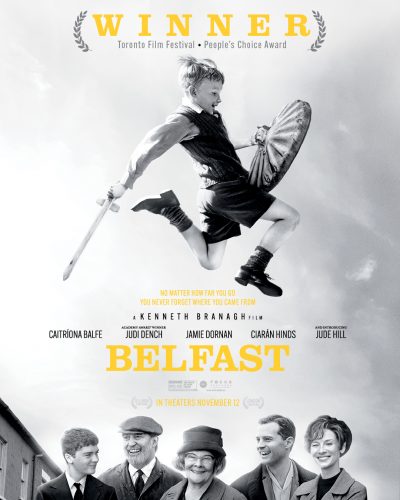
3. “Belfast” (UK)
While writer-director Kenneth Branagh’s latest offering might not always feel as fully fleshed out as it could have been, for what’s here, this semi-autobiographical memoir about the filmmaker’s challenged upbringing in this troubled Northern Ireland city hits all of the right notes and does so in a thoughtful, entertaining, well-balanced manner. The film, which comes across like a fusion of director John Boorman’s “Hope and Glory” (1987) and the nostalgic TV series The Wonder Years, tells the story of a sprightly young lad attempting to grow up as normally as possible in the face of a senseless religious-based civil war that began in 1969, one in which a once-peaceful, harmonious working class community is torn apart by forces that have no business intruding on the lives of good people trying to lead productive and cheerful lives. Told from the perspective of its youthful protagonist, “Belfast” plumbs material that many viewers can easily relate to – family dynamics, first loves, the joy of community and the endearment of adoring grandparents. Admittedly, there are times when viewers are left somewhat wanting for a little more dramatic depth, but the finely penned screenplay nevertheless delivers more than its share of emotionally touching moments and gentle humor, as well as evenly paced, well-developed treatment of its various story threads, all of which are suitably wrapped up by film’s end. All of this is beautifully brought to life by the picture’s superb black-and-white cinematography, its lively and fitting Van Morrison soundtrack, its skillful, sensitive direction, and the excellent performances of its fine ensemble cast, particularly newcomer Jude Hill, Irish actress Caitríona Balfe, and veterans Judi Dench and Ciarán Hinds. It may be tempting to label this a feel-good movie, but that’s too glib considering the backdrop under which the story takes place, one that gives the picture an edge and serves as a constant reminder of what can lurk in the underbelly of our reality no matter how otherwise pleasant our existence may seem.
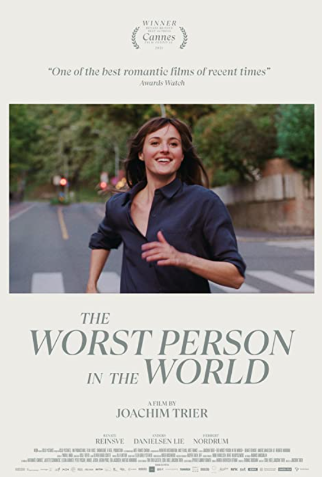
2. “The Worst Person in the World” (“Verdens verste menneske”) (Norway/France/Sweden/Denmark)
Web site Trailer Blog [to come]
When we don’t know what we want out of life, we may appear to others as fickle, capricious or self-centered, especially if we’re not afraid to admit to such uncertainty. And that, needless to say, doesn’t always bode well for our reputation with others. But is this kind of acknowledged indecisiveness truly a character failing, perhaps even a symptom of unacknowledged narcissism? That’s what the protagonist of this insightful, superbly written Norwegian comedy/drama/character study is up against, a scenario in which the film’s principal could easily be characterized as the embodiment of the picture’s title. However, as this offering also shows, it’s possible to say that there just might be a little of the worst person in the world in all of us, an observation that should give us pause to consider how we not only see others but also ourselves. Writer-director Joachim Trier’s latest thus illustrates how the journey of self-discovery is not an easy one, a process that we should be careful to judge, especially when we realize that the bottom line in this is something to which we might all fall prey, mainly because we’re all ultimately only human. The sparklingly crisp screenplay, expertly blended palette of filming styles and stunning lead performance of Renate Reinsve (winner of the best actress award at the 2021 Cannes Film Festival) combine to make a thoroughly enjoyable and thoughtful movie-going experience not to be missed. While this offering has primarily played on the festival circuit, it definitely deserves its upcoming general release, and avid cinephiles should rush to go see it.
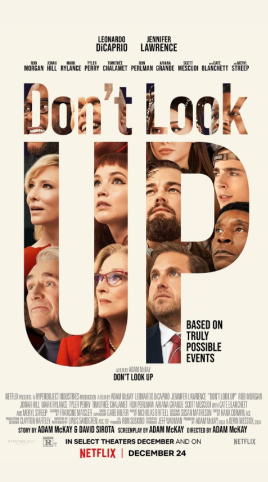
1. “Don’t Look Up” (USA)
Methinks the critics doth protest too much when it comes to their ill-conceived complaints about this brilliant satire from director Adam McKay, primarily because the filmmaker hits far too close to home for the self-absorbed, supercilious elite in business, politics, and, especially, the media, the institution charged with reviewing material like this. This bitingly cynical yet consistently hilarious dark comedy about the responses of various corners of officialdom to the impending impact of a planet-killing comet poignantly illustrates the wrong-headed priority that contemporary authorities place on self-serving expediency rather than genuine leadership in the face of certain doom. As a metaphor for the current state of American culture, the film is undeniably more than a little over the top, but, given the nature of the message, it also couldn’t have been anything less in order to make its point, especially to a society that has become increasingly ignorant and complacent to pay attention to what’s really going on around it. The stellar cast is superb across the board, playing their parts near perfectly for each and every character. But what’s most impressive is how genuinely funny this offering is throughout, never succumbing to lulls, pacing issues or jokes that fail to land, something few comedies can successfully pull off these days. Indeed, in a year that has been characterized by a wealth of lame releases that have been undeservedly touted for their alleged brilliance, it’s truly refreshing to see one that finally lives up to such qualities – even if many of those writing about it can’t see that for themselves, about which all I can say is, “I rest my case.”
Honorable Mentions
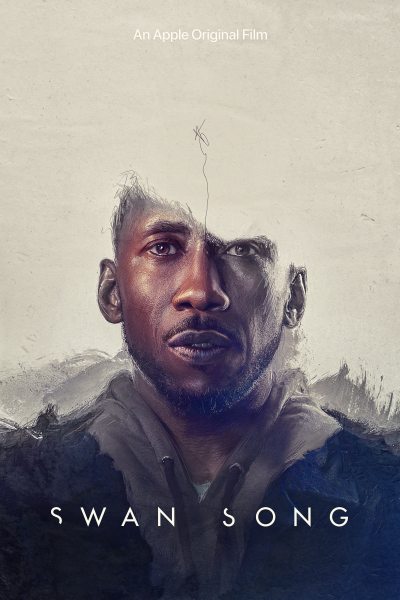
11. “Swan Song” (USA)
The inevitability of death – and the effort to manage (possibly even forestall) the fallout that comes in its wake – is a serious matter for us all, one that truly deserves profound contemplation, the kind that’s rarely seen in the movies. But that’s where writer-director Benjamin Cleary’s debut feature “Swan Song” steps forward. This moving sci-fi offering about a young husband and father facing a premature death, and a provocative solution to ease the blow on his uninformed surviving family members, poses a variety of deep questions and an array of moral dilemmas for a man who wants to do right but is unsure how to handle his circumstances. While the film suffers from some occasional pacing issues in the first half, it nevertheless delivers a number of affecting moments as the picture moves toward its heart-tugging conclusion, providing touching dramatic moments not often seen in films of this genre. The picture’s gorgeous cinematography and clever special effects add elements of beauty and whimsy to the powerhouse performances of its superb cast, most notably that of Golden Globe Award nominee Mahershala Ali, who turns in yet another dynamite portrayal, easily one of the best male lead roles of the year. “Swan Song” may not make for light, fluffy fare, but it certainly is one of the most thought-provoking and important films of 2021.
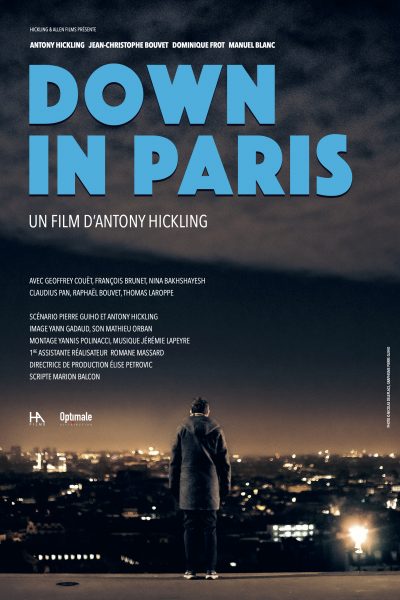
12. “Down in Paris” (France)
Finding ourselves is something we all must do, including members of the LGBTQ+ community, who must ultimately discover themselves in areas of their lives that encompass more than their sexual orientation. Such is the case in writer-actor-director Antony Hickling’s introspective character study about a frustrated filmmaker who walks off the set of his latest picture and spends the night wandering the streets of Paris. During this colorful and sometimes-surreal odyssey, he engages in a series of planned and chance encounters with an array of others, including friends, a former partner, a Tarot card reader and a host of strangers, all of whom nudge the protagonist into taking an honest look at himself, his life, his past and his future, a revelatory and rejuvenating experience in many regards. I applaud this release for taking a wider view of life in which a gay lead character focuses his energies on addressing issues other than his orientation and lifestyle. While the pacing lags a bit in a few sequences, the film does an otherwise-fine job of keeping the narrative moving and engaging without lapsing into dry, protracted talky scenes that weigh down the work. An impressive offering that does much to expand the scope and perspective of what constitutes gay cinema. Sensitive viewers should be aware the picture contains some sexually explicit content.

13. “The Killing of Kenneth Chamberlain” (USA)
When overzealous, racist White Plains cops conduct a wellness check request that was accidentally sent by an aging, mentally ill, African-American former marine, events quickly escalate, turning an allegedly beneficial visit into an out-of-control incident that defies its supposedly inherent intent. Director David Midell’s fact-based second feature outing is, admittedly, an extremely difficult and infuriating watch, a damning indictment of uncalled-for, wholly insensitive, abusive police practices, the kind that makes one wonder who’s protecting whom (if protection itself is indeed actually involved). The up-close, claustrophobic feel generated by the film’s superb cinematography and award-nominated editing effectively draws viewers into the midst of this deeply unsettling story, making audience members squirm in discomfort, especially when one realizes it’s true. This is also made possible by the excellent performances of the fine ensemble cast, most notably Independent Spirit Award nominee Frankie Faison as the beleaguered protagonist and Enrico Natale as a police officer attempting to keep the situation from spiraling into an unmanageable frenzy. Clearly, this is not easy viewing, but it’s certainly vital watching, the kind of movie that should raise awareness – and justified anger.
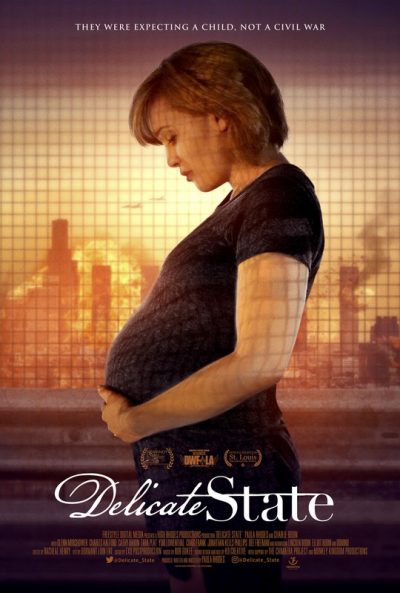
14. “Delicate State” (USA)
Web site Trailer Blog [to come]
Imagine if you were parents-to-be, blissfully happy about the impending blessed event, when suddenly a devastating civil war breaks out. That’s what happens to a young middle class couple living in an unidentified American city as they await the birth of their first child, all the details of which are recorded in detail in a video diary filmed during the increasingly troubled pregnancy. After a somewhat slow and slightly unfocused start, writer-actor-director Paula Rhodes’s debut feature soon changes lanes and tells a chilling story that grows ever-more compelling as it unfolds, leaving viewers on edge as they witness developments taking place in a simulated real-time context. The picture brings an added touch of realism to the narrative as it was filmed during the actor-director’s own pregnancy, accompanied by real-life husband Charlie Bodin as the protagonist’s co-star. The result is a startlingly eclectic mix of unnerving terror and relentless hope fused into one story with an all-too-familiar sociopolitical backdrop. Handily, this is one of the most unusual releases I’ve seen in some time, yet it offers us a potent cautionary tale that we had better take seriously if we expect our society to survive – or run the risk of lawless, uncontrolled collapse.
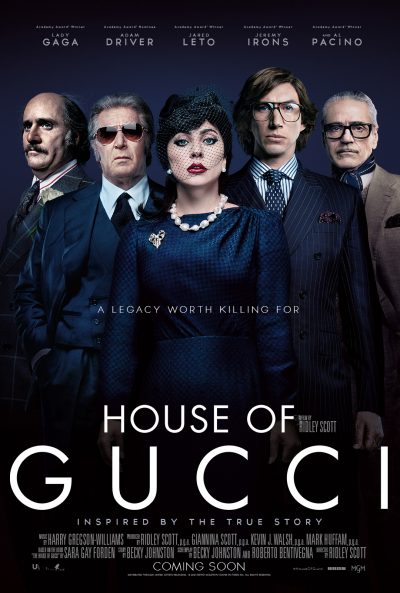
15. “House of Gucci” (Canada/USA)
When it comes to director Ridley Scott’s latest, those going in expecting high drama are going to be sorely, sorely disappointed. However, those craving a hefty serving of high camp will be positively delighted. This tawdry, wickedly funny account of the pulpy soap opera behind control of the famous (or is it infamous?) family-owned Italian fashion empire puts even the best episodes of Dynasty to shame. It’s virtually impossible to take any of this seriously, which is what I believe the filmmaker was going for here, despite those who mistakenly might believe to the contrary. With superb, over-the-top performances by Lady Gaga, Al Pacino, Jared Leto, Adam Driver and Jeremy Irons, coupled with extravagant production design excesses at every turn and a suitably fitting period piece soundtrack, this deliciously guilty pleasure of a film entertains throughout, even at a somewhat overlong (but nevertheless well-paced) two-and-a-half hour runtime. I was pleasantly surprised by this one, especially given its erroneous, off-the-mark advance reviews. In fact, I came away from it rhetorically asking myself, “Who knew Ridley Scott had such a sense of humor!” Indeed, if you don’t come away tickled by this one, then it’s obvious you’re no fun!
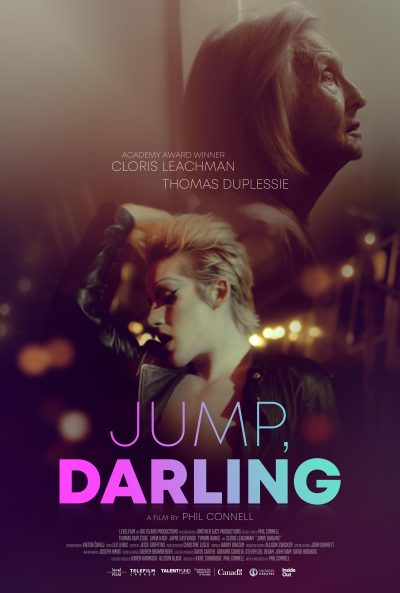
16. “Jump, Darling” (Canada)
When an aspiring actor who has trouble landing roles starts settling into a new routine as a drag queen, the decision does not set well with his button-down control freak boyfriend, prompting him to leave life in Toronto behind and take off for a visit to his aging and increasingly feeble grandmother in rural Ontario. Getting some distance thus provides him with an opportunity to shuffle his priorities and to draw from the no-nonsense wisdom of “grams.” It also enables him to explore new artistic options and love interests, as well as to confront longstanding issues with his loving but overbearing mother. Director Phil Connell’s debut feature may meander a bit at times, but its heartfelt sentiments and sage advice about being willing to take a leap of faith, no matter what the endeavor, will resonate with viewers who have taken – or who need to take – steps aimed at pushing the reset button in their lives. The film is particularly noteworthy as the final screen performance of Cloris Leachman, who is positively superb in the role of the insightful matriarch, capping off a storied career in an auspiciously fitting way, a portrayal sure to tug at the heart strings without being manipulative. This delightful offering holds universal appeal for anyone who has ever had to go through a difficult transition in search of a way to regroup – and come out looking like a queen.
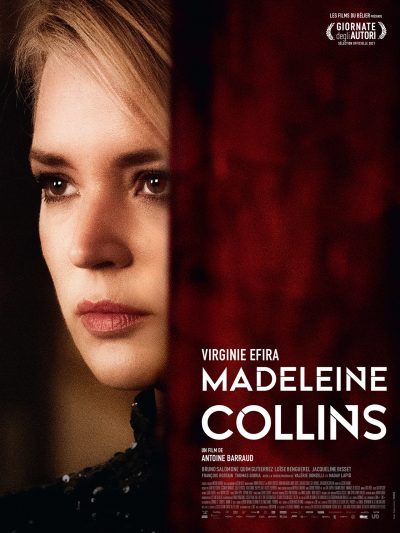
17. “Madeleine Collins” (France/Belgium/Switzerland)
Sustaining suspense and keeping viewers guessing for nearly two hours is quite a feat, but writer-director Antoine Barraud successfully manages to do just that in his latest release, a seamless blend of two genres – psychological thriller and romantic drama. With a number of homages to Hitchcock (particularly his masterpiece “Vertigo” (1958)), as well as many mind-bending tricks of his own, Barraud’s tale of a woman leading two lives – one in Paris and one in Switzerland – dangles an array of intriguing clues before his audience and always manages to confound even the most astute viewers with a parade of new revelations in seemingly every scene. However, despite the narrative’s many misdirections, the story never becomes so confusing or convoluted that it can’t be followed. Instead, the film breeds a succession of delicious “a ha!” moments, maintaining interest as the story slides into a satisfying home stretch. Credit Virginie Efira for shouldering the load here, delivering a riveting performance and making it look effortless. Indeed, if this movie were a book, it would be a real page-turner from start to finish. Don’t miss this one.
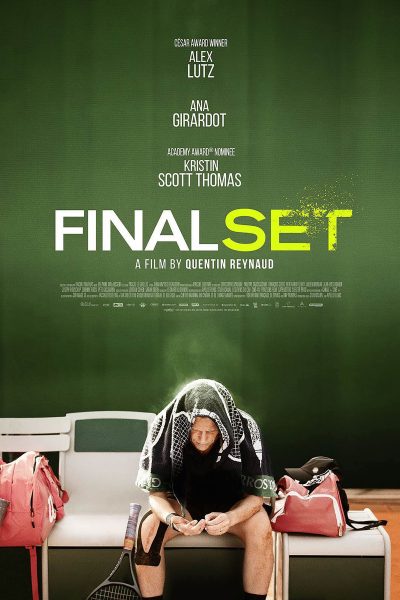
18. “Final Set” (“Cinquième set”) (France)
It’s easy for sports movies to fall into the trap of being corny, clichéd and trite. However, director Quentin Reynaud’s second feature takes the genre a step further, serving up an engaging, thoughtful character study about an aging French tennis star (and onetime prodigy) seeking to finally live up to his potential before his failing physical condition forces him into retirement. In doing so, however, he must not only deal with those ailments, but also face the psychological demons that have dogged him throughout his career. While some elements of the story are a little repetitive and occasionally predictable, the film nevertheless offers viewers a fresh take on issues like drive, obsession and the price we’re willing to pay to realize a cherished goal, no matter what the milieu. The picture’s fine performances, ethereal score and artfully filmed tennis matches mix well, adding to a narrative that seeks to go beyond the expected and ordinary. “Final Set” definitely delivers more than what one might anticipate, advancing a genre that all too often takes the easy route, and one can hardly find fault with that.
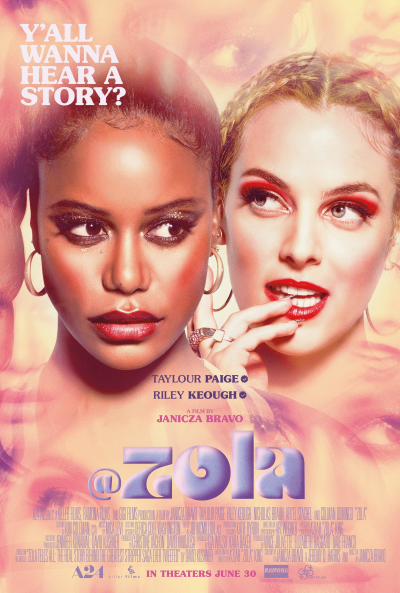
19. “Zola” (USA)
While not everything flows as smoothly as it could in this daffy, edgy, fact-based road trip comedy derived from the contents of a protracted Twitter feed, the parts that do are hilariously ingenious, delivered with punctuated one-liners, snappy writing and inventive, inspired editing. Director Janicza Bravo’s unflinching dive into the depraved world of an exotic dancer who doubles as a sex worker and routinely attempts to rope unwitting colleagues into her world of erotic escapades with a parade of deplorable clients shines a bright light on the unabashedly sleazy side of American culture and the social media/website operations gleefully pandering to those seething desires. The film seldom holds much back, so sensitive viewers should beware of what they might be getting themselves into, but, given the brilliance of the humor associated with such antics, it’s difficult to maintain a prudish façade in the face of the wicked wackiness served up here. To be sure, there are some segments that seem to meander a bit, and it’s not always clear exactly how some events connect, but, considering that the truth is often stranger than fiction, it’s understandable how that might come into play in this offering. The bottom line is that, if you’re up for a polished raunchy romp, this is your film – in all its tawdry glory.
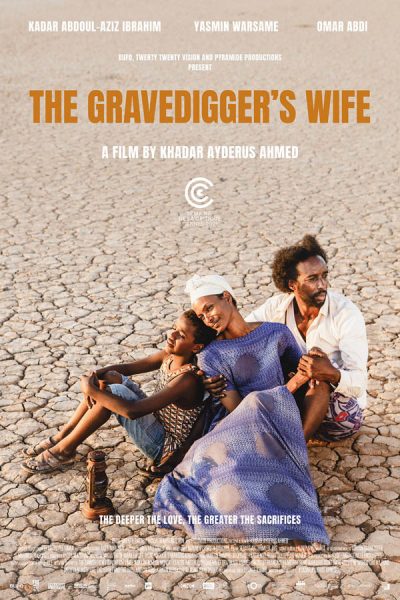
20. “The Gravedigger’s Wife” (“Guled and Nasra”) (France/Somalia/Germany/Finland/Qatar)
Web site Trailer Blog [to come]
What lengths would you go to for the one you love? That’s the core question in this multinational production about a Djibouti gravedigger who barely ekes out a living and is now faced with coming up with the money to pay for a life-saving operation for his dying wife. This heartrending and heartbreaking tale has its predictable moments and a few story threads that aren’t as fully developed as they could have been, but the superb chemistry between the protagonists, enlivened by the excellent performances of Omar Abdi and Yasmin Warsame, make this an engaging and compelling watch overall. Writer-director Khadar Ahmed’s debut feature is a fine showcase for a superb emerging talent, one who shows tremendous promise for future projects.
The Bottom 10 Countdown
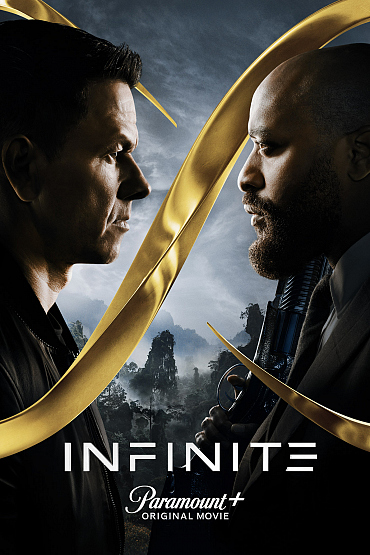
10. “Infinite” (USA)
Web site Trailer
I can see now why certain movies go direct to streaming, a fate certainly befitting of this sci-fi misfire. While director Antoine Fuqua’s reincarnational action-adventure certainly serves up an intriguing metaphysical premise, its execution leaves much to be desired. In an age when many humans have learned how to recall their past lives with remarkable clarity, they have taken opposing views of this capability – one camp believing it provides an opportunity for mankind to learn life lessons that leave the world a better place with the other seeing reincarnation as an inescapable trap with no hope for nothing better – a difference of opinion that has led to conflict between the two sides. The exploration of this idea is indeed an interesting one, but, unfortunately, the story through which it is told consists of a string of implausible, overlong and not terribly interesting action sequences, as well as the plodding performance of Mark Wahlberg and the stunningly hammy overacting of Chiwetel Ejiofor. And what’s with all the mascara? Makeup is something that’s supposed to be invisible, not glaringly obvious or garish, but these characters often look like they’re made up for a ’70s glam rock performance. It’s regrettable that this vehicle underperforms in light of what it has to work with as a starting point, but that’s what can happen when the wrong elements are brought together. And why movies like this end up premiering on the internet instead of in theaters.

9. “The Tomorrow War” (USA)
As big budget dopey summer blockbusters go, this has got to be one of the most laughably ridiculous offerings I’ve ever seen in this genre. The plot of director Chris McKay’s overlong saga of a man vs. alien war fought across time is riddled with more holes than a gun range target. Even the special effects, which should be the biggest asset in a production like this, leave much to be desired, frequently going on far too long and bringing new meaning to the term “silly.” Had the movie more earnestly embraced the campiness factor on which it so often borders (a la “Starship Troopers” (1997)), this probably would have been a much better picture, not to mention a lot more fun. To its credit, the film’s closing sequence helps to make up for much of what preceded it, but, by then, it’s too little too late. And, as for the performances, all I can say is that cast members like Chris Pratt and J.K. Simmons really must have needed the money to become associated with a project as awful as this. Thankfully, the credits eventually do roll, but not until one has surrendered 2:20 that will never be retrieved.
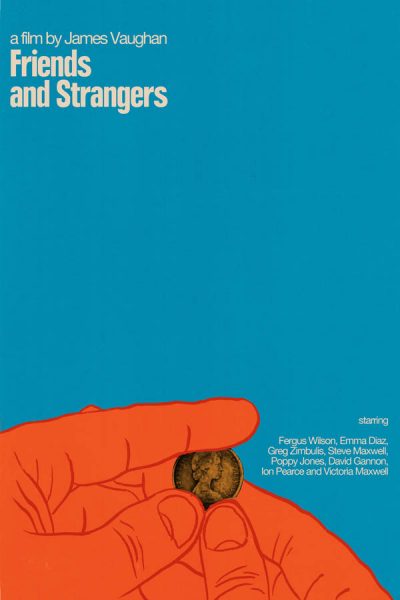
8. “Friends and Strangers” (Australia)
I’ll come right to the point about this one – it sucks, and in more ways than I can count. Writer-director James Vaughan’s debut feature may bill itself as a comedy, but there is absolutely, positively, unquestionably nothing funny about it, other than perhaps being an utterly laughable joke in itself. This cinematic mess has been called a wry, witty, understated look at the ennui of lost, self-conscious millennials comically searching to find their way in contemporary Australian culture and society. I call it self-indulgent, incomprehensible B.S., a collection of uncorrelated film clips strung together trying to pass themselves off, individually and collectively, as something ironic and allegedly profound. I laughed only once during the film’s 84-minute runtime, which, because nothing essentially happens, seems far, far longer than what the clock might say. It’s sad that the Australian movie industry, which has long been known for producing many great films, has to suffer a blemish like this on its reputation. It truly deserves better treatment than that.
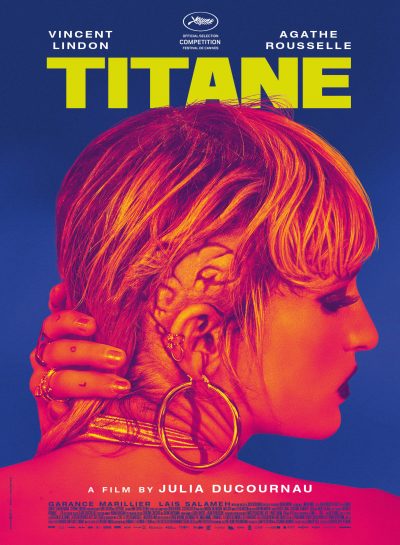
7. “Titane” (France/Belgium)
While this utterly out-there cinematic fiasco may do a fine job at generating shock value (though schlock value would probably be more fitting), there’s nothing otherwise redeeming about this exercise in pointless, pretentious crap. With a story line that’s all over the map, virtually nonexistent character development and almost no resolution to any of its diverse narrative threads, this truly is a case of there being “no there, there.” Those who erroneously try to characterize this garbage as high art will likely rationalize away the complete lack of a coherent story or meaningful insights as “unimportant,” but that’s just far too convenient an excuse to justify the validity and viability of this nonsensical trash. Its stunningly odd mix of slasher film elements, cheesy sexual gratuitousness and bizarre horror film tropes just doesn’t cut it, particularly when it’s further enhanced by such peculiarities as a sexually ambiguous fire company, a steroid-obsessed father figure and incidents that bring new meaning to the concept of “auto” erotica. It’s puzzling how director Julia Ducournau’s latest even made it to the Cannes Film Festival, let alone how the picture walked away with the Palme d’Or, the event’s top prize. It has since also been named France’s official selection for the upcoming Oscar competition. Let’s hope that saner heads prevail before that august ceremony and stop the ill-considered madness associated with this travesty before things go any further.

6. “Licorice Pizza” (USA)
I came away from director Paul Thomas Anderson’s latest heaving a big “So what?” This alleged coming of age romantic comedy set in the 1970s fails on virtually every front. I never laughed once during this tedious, meandering overlong saga, primarily because none of the supposedly funny bits landed successfully enough to bring out the chuckles. As for the romance, I didn’t buy it for a minute, both in terms of its believability and the utter lack of chemistry between the overhyped leads. What’s more, the narrative is merely a string of nostalgic anecdotes (many of which stretch credibility) that bear little relation to one another and often seem to come out of left field, shining a bright light on how poorly written this offering’s screenplay truly is. How this cinematic mess has captured all of the accolades that it has thus far is really beyond me. And, at more than two hours in length, this release is a genuine waste of one’s time. That was surely true for me when I found myself checking my watch after only 25 minutes into it. I can’t say I know how PTA has lost his way as a filmmaker, but that’s very much been the case with his last four productions, which have progressively gone from bad to worse. As for this picture in particular, all I can say is that, having lived through the ’70s myself, they were definitely a lot more fun than this film is.
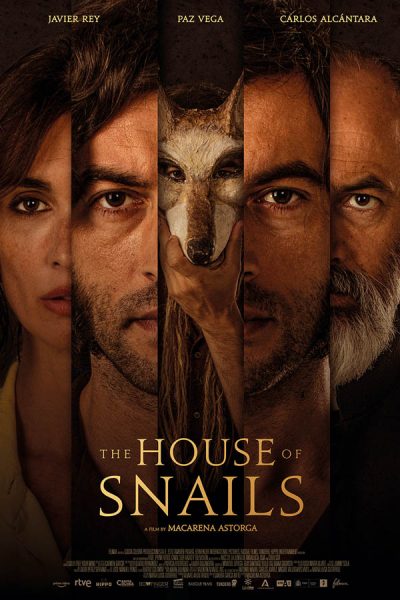
5. “The House of Snails” (“La casa del caracol”) (Spain/Peru/Mexico)
Take a pinch from every horror movie genre you’ve ever seen, order them in an incoherent sequence and add a big reveal that’s not too difficult to spot from a distance (despite attempts at throwing in misdirections or red herrings), and you’re left with this predictable, underwhelming, occasionally gratuitous Spanish entry in a genre that’s all too often characterized by these trite shortcomings to begin with. Besides the foregoing issues, the film also suffers from hammy overacting, formulaic timing for the introduction of clichéd revelations and, of course, the requisite blatantly bad decision-making typical of most horror films. And then there’s the title, which has precious little to do with what actually unfolds on screen and in many ways feels like an afterthought thrown in to keep viewers guessing at its relevance (which, by the way, is largely unsatisfying to boot). Director Macarena Astorga’s debut feature shows she truly has her work cut out for her as a filmmaker. In fact, I don’t think it’s a stretch to say that even devoted fans of this genre would probably walk away disappointed from this one.
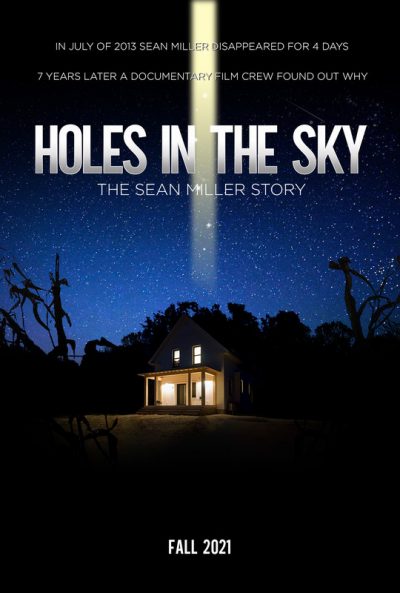
4. “Holes in the Sky: The Sean Miller Story” (USA)
The problem with the “found footage” or “recovered footage” genre is that it can only really be done once to be convincing, and “The Blair Witch Project” took care of that in 1999. Any subsequent attempts at trying to create that kind of “ambiguous mystique” simply fall flat, because viewers can spot them coming a mile away. Only when filmmakers try to do something different with this motif (such as an obvious spoof on it) can they succeed. That’s advice writer-director Ash Hamilton should have followed in his debut feature, which would have been more aptly titled “Holes in the Plot.” This ridiculous but oh-so-serious attempt to do for alien abductions what “TBWP” did for nasty old ladies living in the woods fails on virtually every front, making its $4,000 estimated budget seem bloated given the finished product. From an overlong story line to unexplained, underdeveloped, unresolved story threads to the inclusion of excessive extraneous material to a lack of genuine frights to laughably bad acting, this film has virtually nothing going for it. What’s more, the film’s vague conclusion is obviously being dangled as a carrot to set up a sequel, but, after having sat through the painful 1:54 runtime of this mess of a “documentary,” I can’t imagine anyone begging for more. By the time it got to the end, I, too, was waiting for Scotty to beam me up.
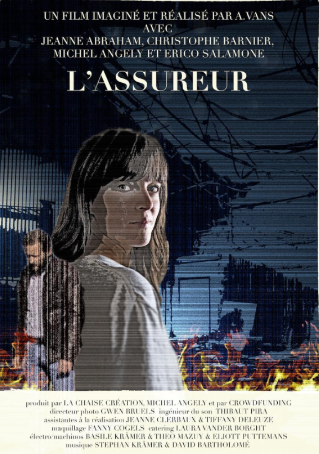
3. “The Insurer” (“L’asseureur”) (Belgium)
What an absolute mess of a movie. This Belgian offering from director Antoine vans can’t seem to make up its mind if it wants to be a crime caper, a rom-com, a buddy movie or some fusion of all three genres. But, to make matters worse, it’s peppered with irrelevant asides, implausible plot devices, needlessly hyped electronic graphic highlights that add absolutely nothing to the narrative and some of the worst subtitling work I’ve ever seen in a foreign film. I could go on further about this one, but I frankly don’t see the point since this is not worth wasting one’s time to watch. Quite a disappointment, given that there is a lot of material here that could easily have been worked up into something fun and entertaining, but that opportunity is lost early on in a film that never manages to recover.
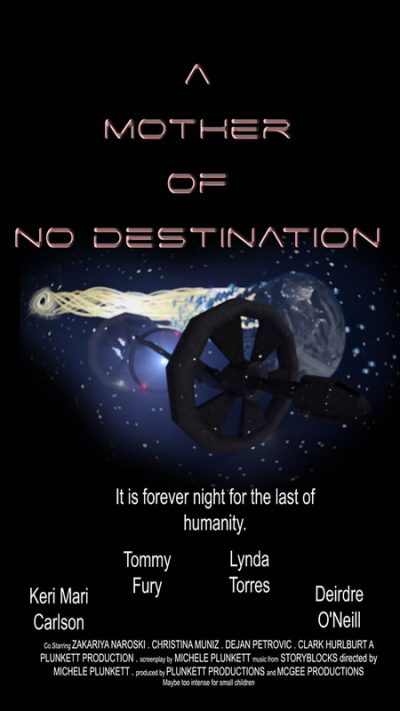
2. “A Mother of No Destination” (USA)
It’s rare that I would give a “0” rating to any film, but, if there ever were a candidate that deserved one, this would be it. Writer-director Michele Plunkett’s laughable mess of a movie plays like a high school class filmmaking project put together by a bunch of friends from the drama club. This apocalyptic space tale with themes straight out of films like “Snowpiercer” features some of the worst acting (if it could even be called that) and cheesiest special effects that I have ever seen. Add to that typos in the electronic graphics, amateurish editing, technical glitches aplenty, and unaligned congruency in the dialogue and film frames (a la a badly dubbed foreign film), and you’ve got one atrociously awful film. There’s even a problem with the soundtrack often overpowering the dialogue, making it virtually impossible to hear what the “actors” are saying (probably to drown out their absolutely horrid delivery). I honestly couldn’t tell if this was an attempt at creating a campy cult classic or if it was just that bad, because all efforts aimed at producing an allegedly good "bad" offering simply were too off the mark to qualify on that front. What surprises me most, though, is that the Brooklyn SciFi Film Festival where I screened it even considered presenting this picture in the first place. If this is considered passable, then the bar must be set pretty low to be included in this event.
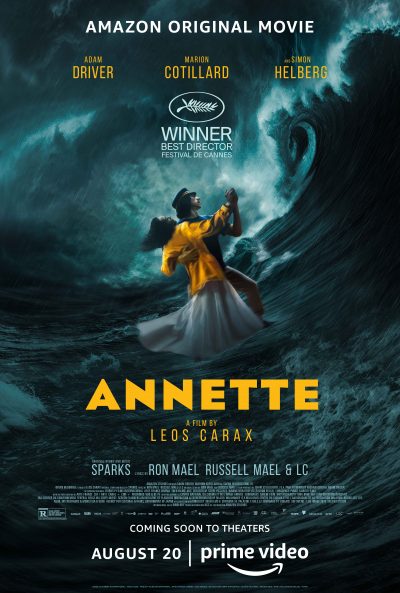
1. “Annette” (France/Belgium/Germany/USA/Japan/Mexico/Switzerland)
When I watch a movie, I pride myself on sticking it out, no matter how awful it may be. However, when it comes to this cinematic monstrosity, I came perilously close to shutting it off on several occasions – it’s that bad. Director Leos Carax’s overstuffed, overlong, virtually unwatchable operatic tragedy is so full of itself that it tries viewer patience from about 10 minutes in all the way to its much-anticipated conclusion, a welcome outcome that doesn’t arrive for more than two hours. This story of an alleged stand-up comedian (though better characterized as a pathetically enigmatic performance artist) and his celebrated soprano wife who become the proud parents of a gifted marionette sans strings meanders along at a glacial pace and grows ever more ridiculous with each passing frame. The “music” (if one can call it that) consists largely of overly repetitive refrains of utterly mundane “lyrics” backed mostly by melodies consisting of a fusion of Carl Orff, Philip Glass and excerpts from the crowd scenes in “Jesus Christ Superstar.” Then there are the performances, which feature an array of issues, including the self-important, miscast portrayal of Adam Driver, the melodramatic overacting of Simon Helberg and the woeful underutilization of Marion Cotillard. I’ll admit that I applaud the filmmaker’s attempt to try and create something fresh and different, but this ain’t it, and how this mess captured the Cannes Film Festival Award for best director is truly beyond me. Unfortunately, this is the kind of arthouse film that tends to give arthouse movies a bad name. By all means, skip this one at all costs.
Dishonorable Mentions
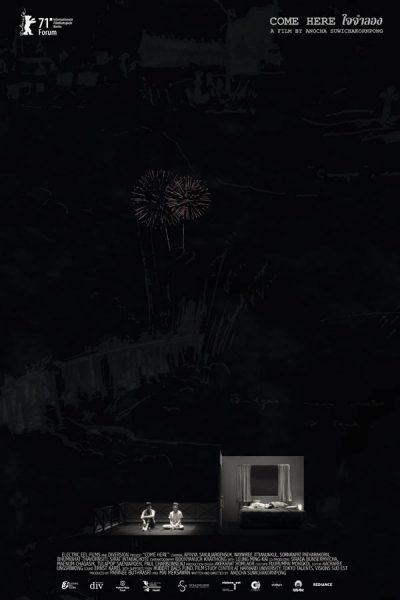
11. “Come Here” (“Jai Jumlong”) (Thailand)
I’m all for cinematic experimentation in the movies. But I draw the line at productions that play like self-indulgent film school projects made by students who assemble montages of their friends engaged in mundane pursuits that they then try to pass off as sublime art. So it is with director Anocha Suwichakompong’s third narrative feature about a group of stage actors vacationing in western Thailand. When they’re not sight-seeing or rehearsing scenes for a play, they engage in utterly inconsequential conversations and pose for protracted (and I do mean protracted) silent close-ups. These segments are intercut with images of bookstores, people sleeping, hydroelectric plants, trains and archive footage of a now-closed zoo. But all of this is to what end? Some say it’s a dream. Others contend it’s a visual tone poem. For me, it’s one giant WTF, but, frankly, your guess here would be as good as mine. While the film is admittedly beautifully filmed in black and white, it moves by at a snail’s pace, the kind of picture that makes one long for a fast forward button. In fact, one could probably get up to use the restroom and come back 20 minutes later having not missed anything. I implore you not to waste your time on this one, because it’s an hour and ten minutes you’ll never get back.
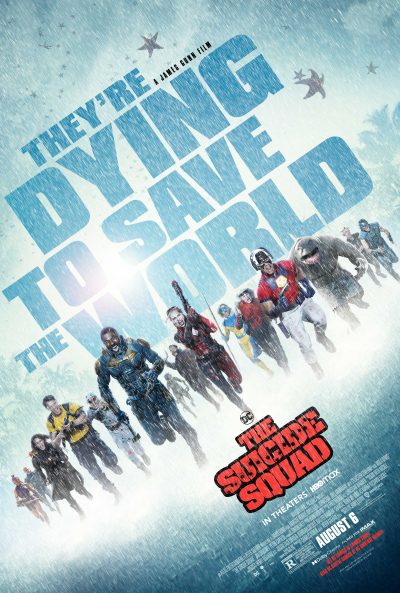
12. “The Suicide Squad” (USA/Canada/UK)
I’m truly at a loss to understand all the praise that’s being heaped on this steaming pile of crap. This latest installment in the “Suicide” franchise is truly annoying, exhausting and exasperating (not to mention shamelessly derivative) in virtually every regard. The overlong ragtag story line defies credibility and coherence, even for an action-adventure/sci-fi/fantasy vehicle, where suspending belief generally gets a pass and is assumed to come with the territory. The uneven pacing and often-amateurish editing bog down the progression of the narrative, and the smorgasbord of gags and action sequences grows wholly tiresome quite quickly, despite a few that land successfully. And, with the exception of Margot Robbie’s third turn in the role of the outrageous and inimitable Harley Quinn, there’s not much to praise among the performances here, either, with heavy hitters like Idris Elba, Viola Davis, John Cena and Sylvester Stallone clearly taking part to cash in on what are assuredly hefty paychecks. Director James Gunn’s latest feels like a production thrown together by a room full of stoned collaborators who have combined all of their ideas no matter how well they mesh and, sadly, with little attention paid to creating something cogent and cohesive. While many critics and viewers may have generously given this one a thumbs up simply for having been an improvement over the film’s predecessor, that’s not really saying much, especially when it comes to whatever discernable merits this second installment might have (not that such qualities are easy to spot to begin with). What’s most troubling, though, is how this picture regrettably reflects the state of the American movie industry these days (thank God for foreign films and documentaries).
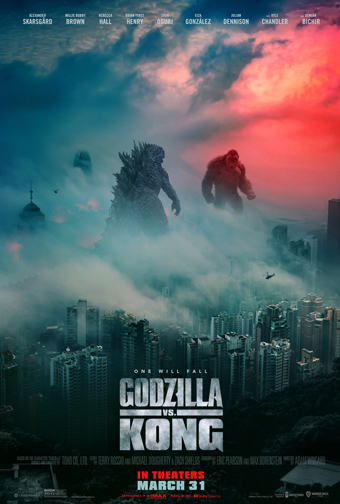
13. “Godzilla vs. Kong” (USA/Australia/Canada/India)
In the interest of full disclosure, I must confess that monster movies are far from my favorite genre. With that said, however, I must also say that this high-gloss, big budget offering is one of the worst entries in this milieu that I’ve ever seen. It’s obviously meant to be a purely visual feast, and, on that score, it does a passable job, with some dazzling special effects (but many that are also outright silly and eminently laughable). Then there’s the story, which is devoid of coherence while perfecting the art of monodimensional character development. Much of the film comes across as if it were being told by a rambling five-year-old (“...this happened, and then this happened, then this happened, then this exploded, and...”). But, worst of all, by the time the picture comes to wrapping things up, it just goes on and on, turning terminally boring, if not sleep inducing. Unless you have an extreme craving for junk food cinema, don’t waste your time with this mess.
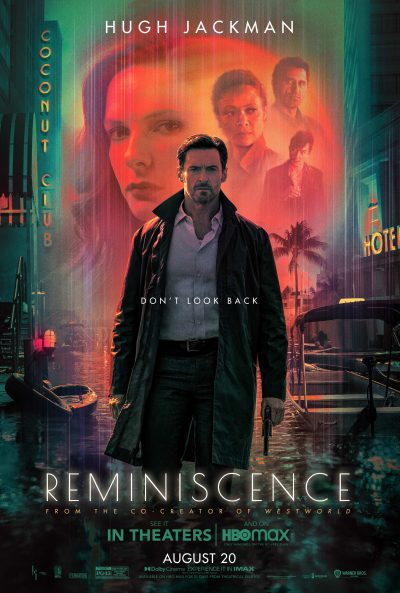
14. “Reminiscence” (USA)
Web site Trailer
It’s truly disappointing when a film starts off with great potential but then squanders its viewer-earned goodwill as the story unfolds. So it is with director Lisa Joy’s debut feature, a future noir offering that mixes sci-fi, romance and mystery in a blend that draws from films like “Blade Runner,” “Brainstorm,” “Inception,” “Total Recall,” “Elysium” and “Déjà Vu.” In a war-ravaged, environmentally degraded version of Miami in which depressed residents escape their troubles by recalling cherished memories thanks to sophisticated mind-tapping technology, a former Navy interrogator who runs a business providing this service finds himself caught up in a steamy romance with a mysterious femme fatale who suddenly disappears without a trace. But, in his attempt to locate her, he unwittingly finds himself caught up in a web of drug trafficking and corruption, circumstances that he would have been better off leaving alone. It’s when the film turns from stylish romance to crime saga that the picture starts getting bogged down in too many plot tangents, underdeveloped story threads and conventionality, all of which undermine what this release had going for it at the outset. To be sure, the romantic and sci-fi elements of this story generally work well, but the more conventional aspects of the story intrude far too much, taking away from the overall viability of the production. The filmmaker shows promise with this debut, but future projects call for better judgment when it comes to determining what works and what doesn’t.
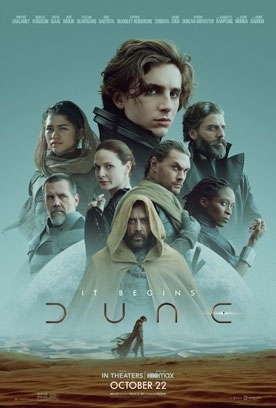
15. “Dune” (USA/Canada)
In creating a film epic, there has to be something “epic” about it in order to qualify for that designation. Unfortunately, this latest remake of Frank Herbert’s “Dune” fails on that point on so many fronts. While the special effects and cinematography are indeed dazzling and the film can justifiably lay claim to yet another outstanding Hans Zimmer score, there’s not much else here to grab viewer attention or evoke an emotional response. A big part of that has to do with the film’s overlong, unengaging narrative, much of which is a cold, boring, confusing, protracted snooze and often tediously derivative in its vision, not to mention inherently and obviously incomplete. There are also casting issues aplenty, with some performers, like Timothée Chalamet and Rebecca Ferguson, being placed into roles for which they’re wholly unsuited, and with others, such as Josh Brolin, Javier Bardem and Charlotte Rampling, being woefully underused. This is an uncharacteristically underwhelming effort from director Denis Villeneuve, a filmmaker best known for stellar work on pictures like “Arrival” (2016) and “Blade Runner 2049” (2017). Regrettably, this is yet another example of a much-anticipated offering that falls flat and comes nowhere close to living up to its potential.
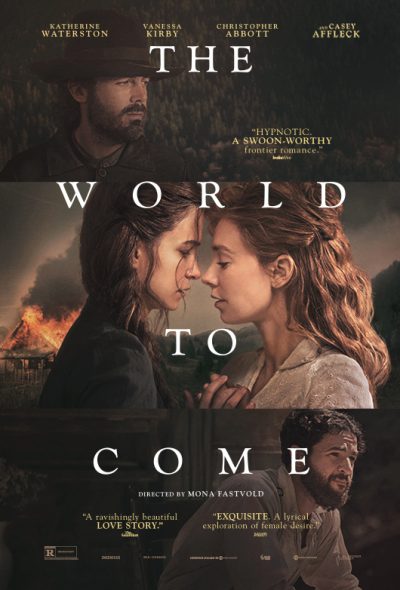
16. “The World to Come” (USA)
No matter how beautifully filmed, poetically (though unnaturally) written and superbly performed this period piece forbidden romance may be, one can’t escape the fact that it is one big, uneventful snooze, especially in the first half. While viewers wait for almost an hour for a plot to develop, in the interim they’re subjected to endless (and often irrelevant) diary entry voiceovers and dialogue exchanges punctuated by words that come straight out of crossword puzzle clues. Director Mona Fastvold’s second feature genuinely aspires to something grand, but it gets bogged down in a sea of pretention, triteness and politely camouflaged outrage, not to mention a lack of chemistry between the film’s two female leads. It’s unfortunate that the superb cast and fine production values are wasted on a vehicle that has been the subject of many a film over the years, despite its somewhat novel time frame. And, even though this offering tends to redeem itself in the final act, it’s not enough to have to endure what precedes it. Catch a nap beforehand – or during the opening half (you won’t miss much).
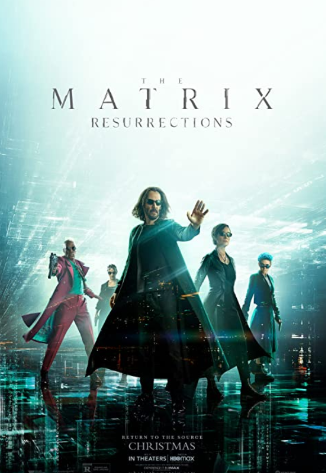
17. “The Matrix Resurrections” (USA)
In the interest of full disclosure, I’ll start off by saying I’ve never been a big fan of “The Matrix” franchise. I’ve found all of the installments to be long-winded exercises in metaphysically oriented intellectual masturbation broken up periodically by stylish action sequences and glitzy special effects. And, regrettably, this latest sequel is mostly more – a lot more – of the same, a picture that could have easily (and more accurately) been titled “Another Matrix Movie.” What’s especially disappointing here is that the film actually starts out with some promise, presenting a narrative in which the picture hints at being a delightful send-up of itself. It also includes some interesting allusions to the lack of meaningful distinctions in contemporary political parties and the public’s often-sheep-like responses to the dictates of officialdom. And there’s some pleasant humor served up in the supporting performances of Neil Patrick Harris and Yahya Abdul-Mateen II. However, despite these fine attributes, this overlong slog runs out of steam quickly, relying on nostalgic flashbacks from the franchise’s previous installments and trotting out an increasingly tiring series of explosions, fights and bombastic special effects to carry a story that becomes so convoluted it’s hard to imagine it holding anyone’s attention (even those who are metaphysically oriented like yours truly). At bottom, there seems to be little to characterize this latest sequel other than it being a vehicle to provide its distributor with yet another cash cow and director Lana Wachowski (sans sibling Lilly) with an opportunity to redeem herself in Hollywood circles (at least at the box office) after several disappointing outings. As a consequence, though, the film fails to deliver much of anything new, fresh or exciting, instead presenting viewers with a release that might have been more aptly called “The Matrix Retreads.”
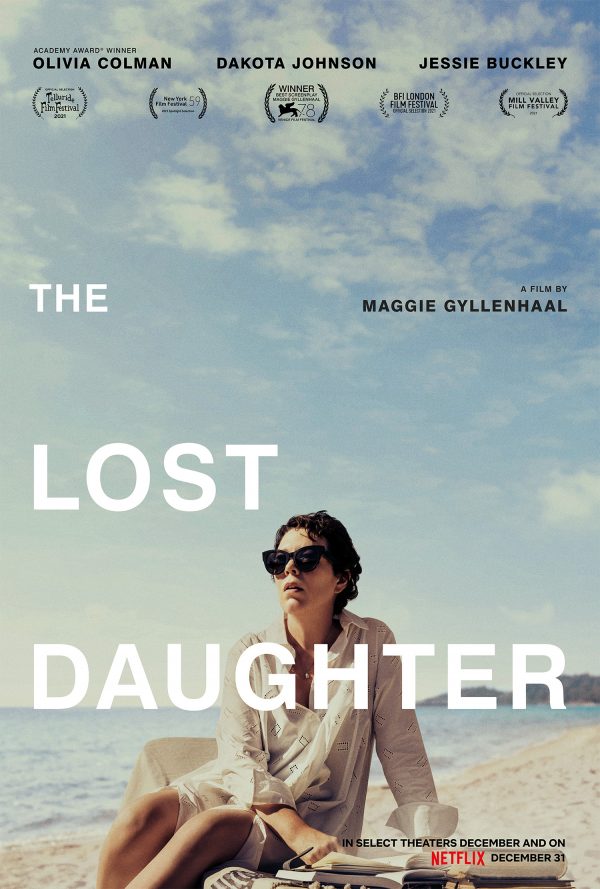
18. “The Lost Daughter” (USA/Greece)
Despite fine performances by Olivia Colman and Jessie Buckley, writer-director Maggie Gyllenhaal’s debut feature is all sizzle and no steak (and not much bona fide sizzle at that). In telling a suspense thriller, the key is the creation and maintenance of “suspense,” and there’s precious little of that here. Instead, viewers are presented with a long-winded narrative that’s boring, meandering and often obvious, with a payoff that offers little captivation, surprise or impact. Many reviewers have praised the work as an ambitious and noteworthy attempt at translating complex source material into a finished cinematic product, but that’s like saying “Nice job at almost getting it right” or “Hearty congratulations on finishing seventh.” It’s become truly frustrating and disappointing this year to see yet another underwhelming new movie offering being lauded with piles of undeserved accolades, but, like so many other offerings before it, this is more proof of what a truly lousy year in cinema 2021 has been. If you really want to see this one, don’t waste your money on a theater ticket – just wait until you can stream it as part of your Netflix subscription – and then do your best to try and stay awake.
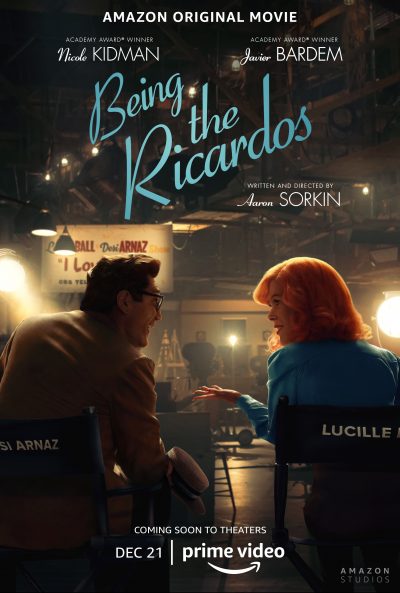
19. “Being the Ricardos” (USA)
Who would have thought that it would be possible to make the cast of I Love Lucy boring, but writer-director Aaron Sorkin has found a way to do it here. This inside look at a week of production of the legendary sitcom, as well as the lives of its two principal stars, Lucille Ball and Desi Arnaz, is woefully unfocused, both in terms of what it’s trying to say and the chronology in telling it. Worse, however, is the fact that there’s not a lot here that’s especially interesting or overly revelatory. But perhaps the biggest issue with this production is the casting of Nicole Kidman as the iconic Lucy, turning in a mugging, self-conscious performance where viewers are not watching “Lucille Ball” but “Nicole Kidman as Lucille Ball.” That’s unfortunate, given the commendable portrayal of Javier Bardem as Desi Arnaz, effectively showcasing the actor-producer’s often-underappreciated efforts as the brains behind this operation, one that changed television history forever (even if one wouldn’t necessarily get that from watching this film). It’s often said in Hollywood that it’s unwise to attempt to remake the classics – or, in this case, to even attempt to re-create them.
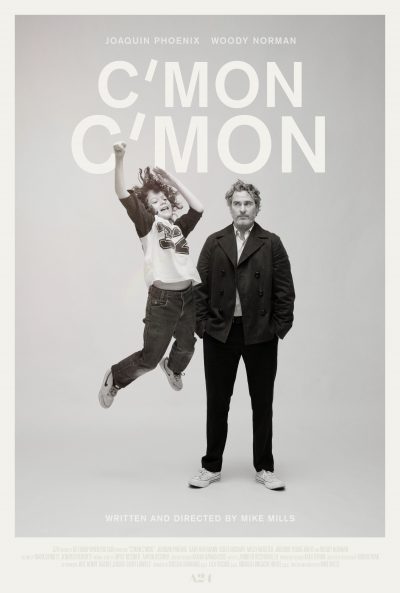
20. (tie) “C’mon C’mon” (USA)
“C’mon C’mon” is certainly an apt title for this offering – it’s what I kept saying to myself throughout much of this directionless exercise in pretentious contrivance, my leg progressively tiring of being pulled from the lack of credible believability. Director Mike Mills’s latest exploration of “feelings!” is so overwrought that I lost interest quickly; in fact, I started checking my watch about 25 minutes into it and found myself doing so frequently thereafter. This is yet another film featuring the scenario of a quirky, uber-sensitive, ultra-perceptive kid who simultaneously claims to not understand the world around him while somehow also having an uncanny grasp of it, surrounded by adults who are fundamentally even more clueless than he is despite their pontifications about the latest in indulgent child-rearing techniques. The over-the-top coddling afforded the child annoyingly comes across like a time-out on steroids, even going so far as to have the parental figures seemingly always apologizing to the youngster for their supposed shortcomings. I’m by no means opposed to giving children their say and the need for adults to make up for their faults toward them when necessary, but this one got on my nerves early and often in its obsequious slow-motion stroll to the finish line. To its credit, the picture’s black-and-white cinematography is gorgeous, and the film features a fine supporting performance by Gaby Hoffmann. But the choice of Joaquin Phoenix for the lead role is a prime example of miscasting, and Woody Norman as his pint-sized sidekick pervasively got under my skin. Those who are lavishing praise on this one are in desperate need of reality check, not unlike the characters in this narrative and the crew that made the film.
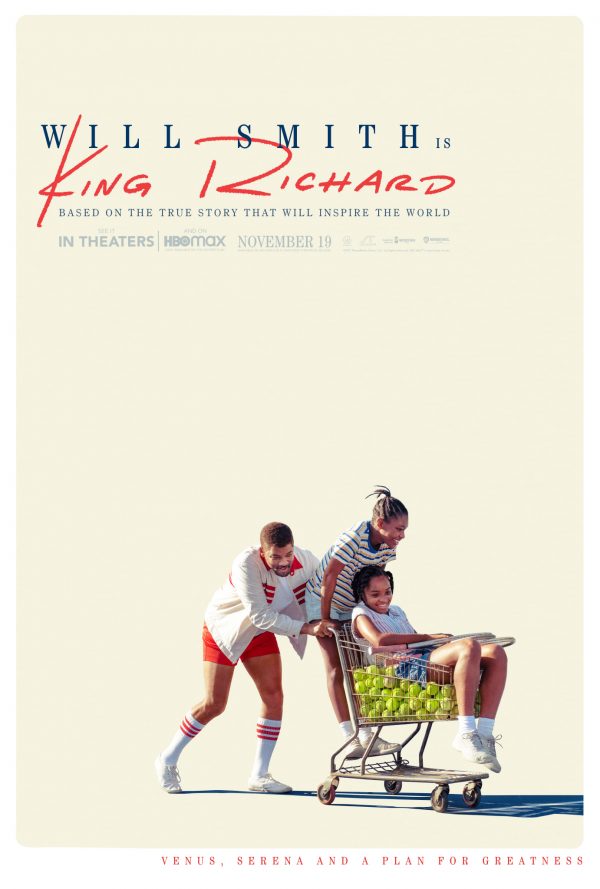
20. (tie) “King Richard” (USA)
I’m really at a loss to understand the widespread fuss being made about this dull, overlong biopic about the self-promoting patriarch of the Williams family tennis dynasty. Director Reinaldo Marcus Green’s latest explores the unconventional, often-questionable lengths that its protagonist went to in developing the astoundingly successful careers of his gifted daughters Venus and Serena. But that, in itself, illustrates the inherent problem with this film – why is it focused on the management and not the talent? King Richard’s story, if truth be told, just isn’t that interesting. The drama is far from compelling, frequently settling into a narrative that becomes circular and thematically redundant. More importantly, though, the real stars of this story are relegated to second billing, essentially watering down the most engaging element it has to offer. To the picture’s credit, it features yet another fine lead performance by Will Smith (though far from the award caliber it’s being touted for), and there are some modest moments of heartfelt inspiration (though not nearly as much as one might expect). So, unless you’re a diehard tennis buff or enjoy the managerial back stories of sports legends, you might easily become bored by this one, especially with a two-and-a-half-hour runtime that misses the mark of what the picture truly should be all about.
Copyright © 2021-2022, by Brent Marchant. All rights reserved.

No comments:
Post a Comment